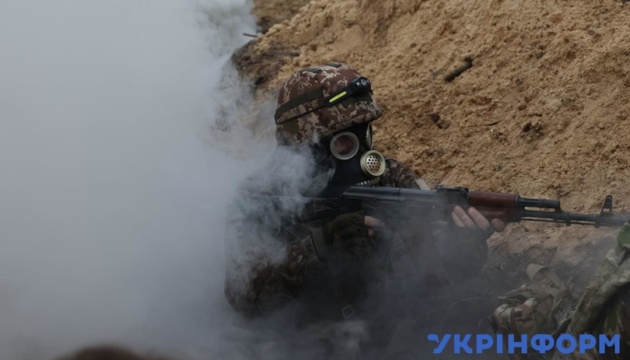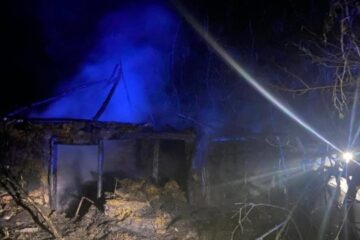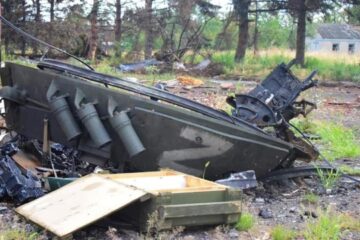
Since the start of the full-scale war, the Security Service of Ukraine has documented more than 10,000 chemical attacks by the Russian Federation against the Ukrainian Armed Forces.
According to Ukrinform, this was reported by the SSU press center.
According to the special service, these include K-51, RGR, and RG-Vo aerosol grenades equipped with irritant toxic substances – CS (chlorobenzylidene malonitrile) and CN (chloracetophenone).
There are also frequent cases of Russian invaders using ampoules containing the toxic substance chloropicrin.
“The use of such means of warfare is prohibited by the Convention on the Prohibition of the Development, Production, Use and Stockpiling of Chemical Weapons and on their Destruction of January 13, 1993,” the SSU noted.
According to the investigation, the Russians use most of their chemical munitions in the form of drops from FPV drones on the defensive positions of Ukrainian defenders.
After hitting the target, the toxic compounds in the chemical charge affect the mucous membranes of the soldiers, primarily their eyes and respiratory organs.
“In this way, the enemy is trying to force the Defense Forces soldiers to leave their trenches and dugouts under the targeted fire of the occupiers,” the SSU emphasized.
Most cases of the use of such weapons by the Russian military have been recorded on the eastern front, as well as during enemy strikes on the Nikopol district of the Dnipropetrovsk region.
“In order to document and bring the Russians to justice for these crimes, the SSU is not only investigating its own criminal proceedings, but also involving relevant international organizations in documenting these facts,” the special service said.
In particular, in order to conduct the necessary laboratory tests and inform the international community, the SSU transferred part of the material evidence to the Organisation for the Prohibition of Chemical Weapons (OPCW) in The Hague through the Ministry of Foreign Affairs of Ukraine.
Based on the results of the relevant research, this international organization published three reports confirming the systematic use of chemical agents by the Russian Federation as a means of waging war against Ukraine.
As a result, the EU Council imposed sanctions on Russian units that are part of the Russian Armed Forces and are involved in the development and use of chemical weapons in Ukraine.
In particular, the EU restrictions apply to the aggressor country’s radiation, chemical, and biological protection troops, as well as the 27th Scientific Center and the 33rd Central Research and Testing Institute of the Russian Ministry of Defense, which are engaged in the development of prohibited chemical weapons.
The special service also emphasized that within the framework of a multi-episode criminal proceeding initiated by SSU investigators under Article 438 of the Criminal Code of Ukraine (war crimes), an investigation is ongoing to bring the military and political leadership of the aggressor state and all those involved to justice.
Among others, in December 2024, the SSU reported on the in absentia suspicion of Russian General Ihor Kirillov, commander of the Russian Armed Forces’ Radiological, Chemical, and Biological Protection Forces (RCBPF).
According to counterintelligence and SSU investigations, this official is responsible for the mass use of chemical munitions against Ukrainian troops.
“The SSU’s pre-trial investigation is ongoing, and comprehensive measures are being taken to bring every Russian war criminal to justice,” the special service emphasized.
As reported by Ukrinform, in June, the Organization for the Prohibition of Chemical Weapons (OPCW) confirmed in its new report that Russian troops had used a “toxic chemical substance” against Ukrainian forces, which is a violation of international law.
Ukrinform photos can be purchased here
Source: SSU records over 10,000 Russian chemical attacks against AFU



